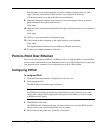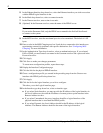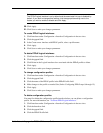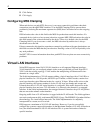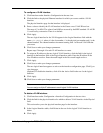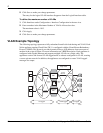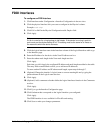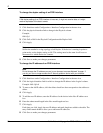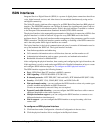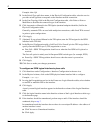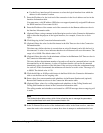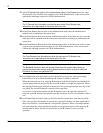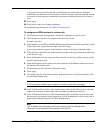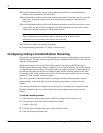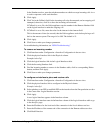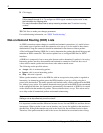
Nokia Network Voyager for IPSO 4.0 Reference Guide 51
ISDN Interfaces
Integrated Services Digital Network (ISDN) is a system of digital phone connections that allows
voice, digital network services, and video data to be transmitted simultaneously using end-to-
end digital connectivity.
The Nokia IP security platform offers support for an ISDN Basic Rate Interface (BRI) physical
interface. The ISDN BRI comprises one 16 Kbps D-channel for signalling and control, and two
64 Kbps B-channels for information transfer. Nokia’s physical interface is certified to conform
to the European Telecommunications Standards Institute (ETSI) ISDN standard.
The physical interface is the manageable representation of the physical connection to ISDN. One
physical interface is visible in Network Voyager for every ISDN BRI card in the Nokia
appliance chassis. The physical interface enables management of the parameters specific to each
ISDN connection. The physical interface permits enabling or disabling of the ISDN connection
and is the entity under which logical interfaces are created.
The logical interface is the logical communication end point. It contains all information used to
set up and maintain the ISDN call. The logical interface includes:
Data link encapsulation and addressing
Call connection information such as call direction, data rate, and the number to call
Authentication information such as names, passwords, and authentication method
Bandwidth allocation for Multilink PPP
After configuring the physical interface, then creating and configuring the logical interfaces, the
Nokia appliance is ready to make and accept ISDN calls. Detailed information on how to create
and configure ISDN interfaces begins in “To configure an ISDN physical interface.”
The ISDN interface supports the following features.
Port—ISDN Basic Rate S/T interface with RJ45 connector
ISDN signaling—ETSI EURO-ISDN (ETS 300 102)
B-channel protocols—IETF PPP (RFC 1661 and 1662); IETF Multilink PPP (RFC 1990)
Security—PAP (RFC 1334), CHAP (RFC 1994), and ISDN Caller ID
Dial-on-demand routing—you can configure the ISDN interface so that only certain types
of traffic establish and maintain an ISDN connection.
Circuits are automatically removed if they are not required.
Dynamic bandwidth allocation—you can configure the ISDN interface to add or remove
additional bandwidth as the traffic requires it.
Multiple destination support—you can configure the ISDN interface to connect to two
different destinations simultaneously.
Dial-in support—you can configure the ISDN interface to accept incoming calls from
remote sites.
To configure an ISDN physical interface
1. Click Interfaces under Configuration > Interface Configuration in the tree view.
2. Click the physical interface link to configure in the Physical column.



